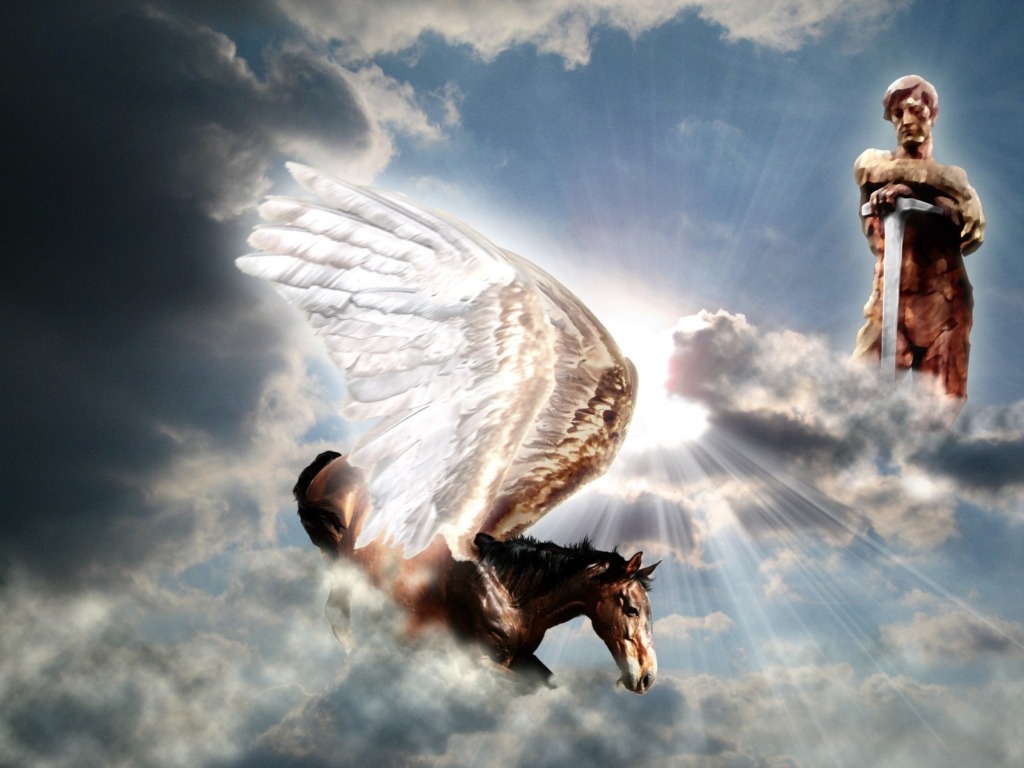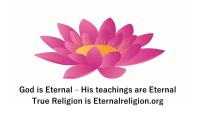
The oldest scriptures on the planet, the Vedic scriptures, explain what happens after death.
What will happen to me after death?
The non-Vedic religions preach that this is the only life and after this life, we wait in our grave for the day of judgment and on that day we are either sent to hell or heaven forever. This means that for the sinners there is no second chance, as they will go to hell forever. They also preach that those who don’t follow their religion will go to hell forever.
This philosophy raises some serious questions:
- What happens to those who die in fires? Are they gone forever through no fault of their own?
- What happens to those who are cremated? Are they gone forever?
- If this is the only life, then why is everyone born in different conditions? Some are born rich, some poor, some healthy, some diseased, some die at an early age, some live longer, some suffer more than others, and so on.
- Out of the billions who have been dead and buried, has anyone risen (resurrected) from their grave yet?
- When will the dead rise from their grave (be resurrected)?
The good news is that there is a religion, which preaches that God is merciful to all and thus know-one, is sent to hell forever. Everyone gets not one but unlimited chances.
According to the Vedic scriptures, the oldest known to mankind. There is hell, heaven, and something beyond them, the spiritual universe called Vaikuntha. Hell and heaven are temporary but the spiritual universe is permanent.
What happens to the sinners?
After this life the sinners will take birth on one of the hellish planets and after their punishment is over they will again return to this or other Earthly planets in a suitable body (human or animal) and conditions of life (rich, poor, diseased, healthy etc..).
After this life the pious will take birth on one of the heavenly planets and when their pious credit is over, they will again return to this or other Earthly planets in a suitable body (human) and conditions of life (rich, poor, diseased, healthy etc..).
What happens to those who are very good?
After this life those who are god conscious will take birth in the spiritual universe, Vaikuntha, and will never return to the material world unless they really want to. There is no death, no disease, no anxiety, no taxes, no killing (no meat), no sex, no speculation, and no intoxication in the spiritual universe.
We are not this Body
The main teaching of the Bhagavad-Gita is that we are not this body, but the soul, which is eternal.
“For the soul there is neither birth nor death at any time. He has not come into being, does not come into being, and will not come into being. He is unborn, eternal, ever existing and primeval. He is not slain when the body is slain.” (Lord Krishna, Bhagavad-Gita)
Living beings are souls covered in a particular material body. Being material, the body is by nature temporary, and must at some point deteriorate and die. The soul on the other hand is spiritual in nature, which can never be destroyed. Material life is temporary, full of ignorance, and suffering. The soul is eternal, full of knowledge and bliss.
What goes up will come down. Similarly, anything that has a beginning will also have an end. Thus the body, which has a beginning, will inevitably have an end, but the soul, which has no beginning, will continue to exist after the body is slain.
“One who has taken his birth is sure to die, and after death one is sure to take birth again. Therefore, in the unavoidable discharge of your duty, you should not lament.” (Lord Krishna, Bhagavad-Gita 2.27)
Lord Krishna describes death in the Bhagavad-Gita as being nothing more than a change of dress:
“As a person puts on new garments, giving up old ones, the soul similarly accepts new material bodies, giving up the old and useless ones.” (Lord Krishna, Bhagavad-Gita 2.22)
This body is nothing but a vehicle, and the soul is the passenger. When this vehicle is no longer suitable for the soul, due to old age and decay, the soul is given a new vehicle. Thus death is simply the transition from one vehicle to the next.
“As the embodied soul continuously passes, in this body, from boyhood to youth to old age, the soul similarly passes into another body at death. A sober person is not bewildered by such a change.” (Lord Krishna, Bhagavad-Gita)
What determines the next body that one will get after this body?
Lord Krishna answers this question as follows:
“Whatever state of being one remembers when he quits his body, O son of Kunti, that state he will attain without fail.” (Lord Krishna, Bhagavad-Gita 8.6)
According to our consciousness at the time of death we receive a suitable body. What we remember at the time of death is not just a matter of the momentary thought that occurs. What we have done throughout our entire life will naturally come to our mind as we leave our body. Just prior to death, our entire life is flashed before our mind’s eye in a split second. One particular event will be very attractive to us, and we will focus on that. Based on that desire we will be given our next body, sometimes higher and sometimes lower.
If our mind focuses on an activity, which is very ignorant, we will receive a suitable body among the lower species of life – as a plant, a fish, a tree, or an animal.
If our mind focuses on an activity, which is passionate, we will be given a body within the human categories of life.
If our mind focuses on an activity, which is primarily within the mode of goodness, we will receive a body on one of the higher planets – Brahmaloka, Indraloka etc.
At death our mind will focus on an activity based on how we have lived our entire life. It is not possible to suddenly make our consciousness pure if we have spent our entire life engaged in sinful activities.
Lord Krishna describes this entire universe as temporary and full of suffering. No matter which body one has, these two qualities are there. But there is an alternative, a solution to this seemingly endless cycle. Lord Krishna says:
“And whoever, at the end of his life, quits his body, remembering Me alone, at once attains My nature. Of this there is no doubt.” (Lord Krishna, Bhagavad-Gita 8.5)
If we are able to remember Lord Krishna at the time of death, we will become free from the external covering of the body and attain His eternal abode. This sounds very simple, but again it is not such an easy thing. Death is the ultimate test we must all face. What will be our consciousness at that moment? For those who are attached to the body due to identifying the body as the self, death is the most difficult occurrence.
For a self-realized person the situation is completely different. He understands he is not the body. He knows the body is just a vehicle, a machine, and as such he has no attachment to the external body. And because his consciousness is always fixed on the Lord, his destination is complete freedom from the cycle of birth and death.
“After attaining Me, the great souls, who are yogis in devotion, never return to this temporary world, which is full of miseries, because they have attained the highest perfection.” (Lord Krishna, Bhagavad-Gita)
“That supreme abode of Mine is not illumined by the sun or moon, nor by fire or electricity. Those who reach it never return to this material world.” (Lord Krishna, Bhagavad-Gita)
“Always think of Me, become My devotee, worship Me and offer your homage unto Me. Thus you will come to Me without fail. I promise you this because you are My very dear friend.” (Lord Krishna, Bhagavad-Gita)
Is There Any Evidence of Reincarnation?
There is over whelming evidence to support the reincarnation theory. Millions of humans around the world have had past life memories. There are numerous books and video documentaries with supporting evidence. Some evidence is also on the home page of this site.
